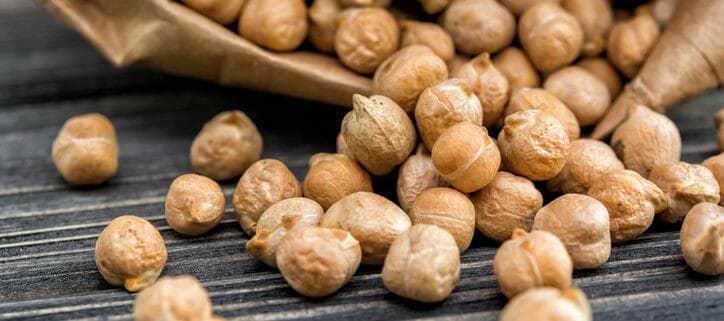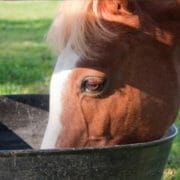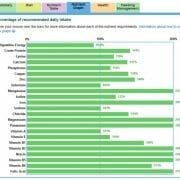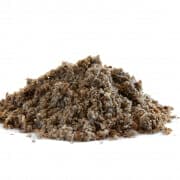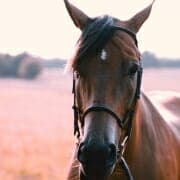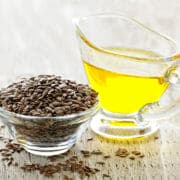Chickpeas For Horses: Should They Be Cooked First?
4 things to consider when feeding chickpeas to horses
- Chickpeas do contain anti-nutritional factors including trypsin inhibitor, which is the same as the main anti-nutritional factor found in soybeans. Trypsin inhibitor does exactly as its name suggests, it inhibits/stops trypsin, an enzyme in the small intestine which chops up protein into smaller pieces so it can be absorbed. Too much trypsin inhibitor in the gut can reduce protein digestion to such an extent that protein deficiency will become apparent. This doesn’t sound good for chickpeas!
- BUT, on reading about the amount of trypsin inhibitor in chickpeas it is much, much lower than soybean. In the published literature there are values of 15 TUI (Trypsin Units Inhibited – reflects quantity of trypsin that has its activity inhibited) for chickpeas while values for soybean are more like 80 TUI. Reading papers and interpreting units is challenging as it seems everyone likes to express their TUI units in slightly different ways so just be careful with this!
- Chickpeas have been fed raw to pigs at levels of up to 88% without affecting measured parameters to determine growth and feed conversion. A pretty good indication the anti-nutritional factors aren’t too anti-nutritional as growing pigs will show us very quickly if something is not right. This study did however find that adding additional methionine improved growth performance in chickpeas.
- Chickpeas are routinely used uncooked in pig diets in Australia at levels up to 20% of the diet without any ill effect. They typically aren’t fed to younger pigs less than 20 kg bodyweight.
Updates in FeedXL…
Based on all of this we have now updated our information in FeedXL to read:
Chickpeas are classified as a pulse, which is a seed from a leguminous plant. Chickpeas are rarely included in horse diets but can be fed as a protein and energy supplement in much the same way lupins or faba beans are used. The protein is of moderate to good quality with good concentrations of the essential amino acid lysine. They may however be too low in methionine for some classes of horses.
Like most pulses, chickpeas appear to contain some anti-nutritional factors including a trypsin inhibitor, which blocks the activity of the protein digesting trypsin enzyme in the gut and can negatively affect protein digestion. The anti-trypsin activity of chickpeas is however much lower than that of soybean, with chickpeas expected to ‘block’ around 15% of trypsin enzyme activity in the gut compared to more than 80% of trypsin activity being blocked when raw soybean is fed.
Chickpeas should therefore be safe to feed without any form of heat treatment to mature horses at levels of no more than 20% of their ‘hard feed’. If larger amounts were to be fed, heat treatment is recommended. Chickpeas would be best heat treated prior to feeding if being fed to horses younger than 12 months of age.
As always our information is quite conservative, but we prefer to play it safe with so many people using our service with so many varied scenarios.
Do you have a question or comment? Do you need help with feeding?
We would love to welcome you to our FeedXL Horse Nutrition Facebook Group. Ask questions and have them answered by PhD and Masters qualified equine nutritionists and spend time with like-minded horse owners. It’s free!
Click here to join the FeedXL Horse Nutrition Facebook Group

